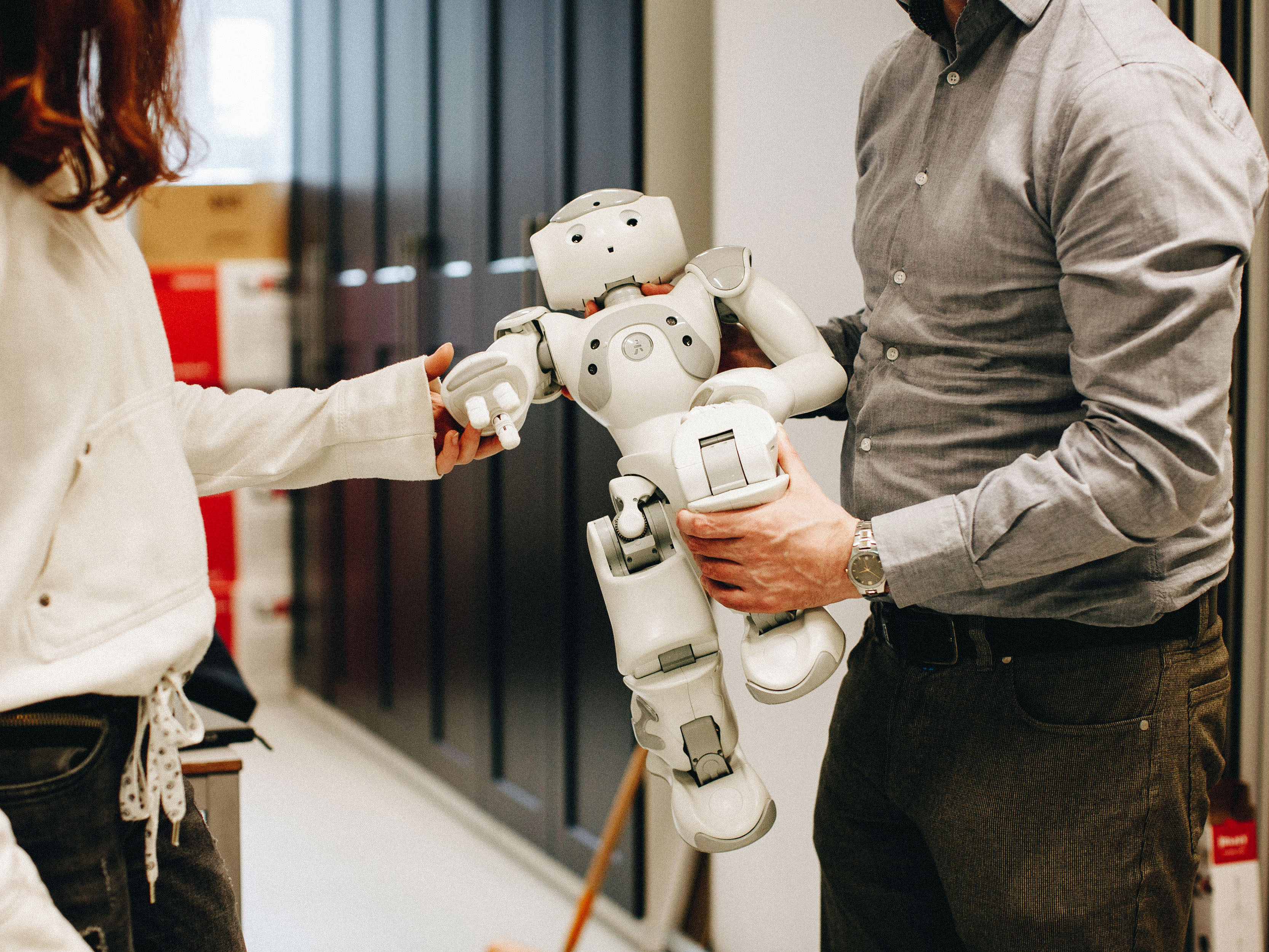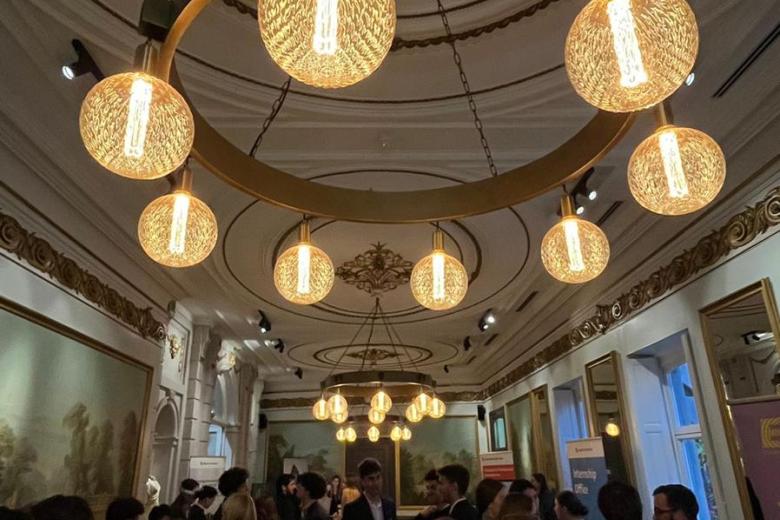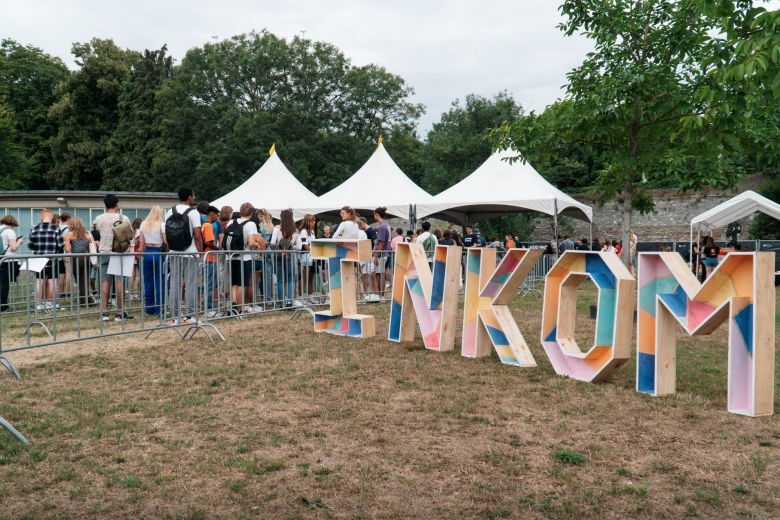Computer Science programme off to a flying start
Last year, Maastricht University further strengthened its profile in science and technology by launching a Bachelor in Computer Science. The response exceeded all expectations, with the first cohort of 300 students from all over the world starting the programme in September. “Computers and automation have incredible appeal,” says Professor Mark Winands, chair of the Department of Advanced Computing Sciences (DACS). “And that’s a good thing, because well-trained specialists are in high demand.”
In 2019, the Faculty of Science and Engineering decided to add Computer Science to its rapidly expanding range of study programmes. But for various reasons, including the pandemic, it wasn’t until 2022 that accreditation was secured. Mark Winands then began assembling a group of teachers and locating the necessary facilities.
“The idea was to launch the programme in 2023 in a modest way, with 50 to 100 students,” he says. “We deliberately did very little marketing—no international fairs or advertising. Even so, the response was overwhelming. Nearly 2000 prospective students requested information, and we ended up admitting just over 300 applicants. Around 20% of our students are from the Netherlands, 60% from elsewhere in Europe and 20% from other continents. It’s clear that young people are interested in pursuing careers in software development, improving the quality and security of computers and apps. That’s the main focus of our programme.”
Separate programme
Winands, who specialises in artificial intelligence, wasn’t entirely surprised. As programme director and lecturer in the Bachelor in Data Science and Artificial Intelligence, he’d seen interest in the field grow over the years. “It makes sense that it’s a popular programme—these days everyone’s talking about data and AI. Back in 2019, the education advisory board of Data Science and AI already recommended that we introduce a separate Bachelor in Computer Science, so we were well aware of the demand. Companies and governments face a severe shortage of developers. But the response exceeded our expectations. Computer Science is genuinely a different discipline, more driven by technology and hardware.”
High-level maths
In particular, Winands had anticipated fewer Dutch applicants. “One of the admission requirements is a high level of secondary-school maths, which fewer and fewer Dutch students have. This is an unfortunate result of the profile system in high schools, and it’s partly why we have such a STEM skills shortage, as universities are all too aware. So more than 60 Dutch students is, relatively speaking, quite a large number. We also have lots of Germans and Belgians, particularly from border areas. There are good opportunities for them in this region, where computer technology is increasingly important. Take the Einstein Telescope project in Maastricht, which needs hundreds of specialists. We’re already providing them with Data Science and AI specialists; now we’re training developers as well.”

Challenges
The decision to accept three times more students than planned did present some challenges. “There’s plenty of space here,” Winands says during a tour of the building, housed in the former Mercedes call centre. “We have enough rooms for the tutorials and a spacious learning environment. But we had to scramble to arrange bicycle parking and find a large lecture hall. We’ve been using the hall in the former Maastricht School of Management building nearby. We’ll need more space next year, when the next cohort arrives, but this building is large enough to handle it.”
Master’s programme
The Computer Science team is currently developing the curriculum for the second and third years of the programme. “And we’re considering introducing a master’s programme. That would give DACS a total of about 2000 students, allowing us to compete with other Dutch unis like the University of Twente or Delft University of Technology. Ten years ago, that would’ve ruffled some feathers, but today, there’s an awareness that we need these programmes in the south of the Netherlands as well. Computer science and technology is a rapidly growing sector, after all.”
“In the right place”
In her final year of high school, Laura van Rooij had a hard time deciding what to study at university. “I knew it had to be related to maths, my favourite subject. I was interested in Game Design, but UM doesn’t offer that, and I wanted to go to a university close to home.”
Van Rooij, who grew up in Germany and South Limburg, looked into studying Artificial Intelligence and Data Science at UM. That’s when she learnt about the new Computer Science programme. “The open day and workshop took away any doubts I had. It’s a broad-based degree in programming and software development, with plenty of maths. So it will give me a solid foundation, with lots of options for master’s degrees and, later, career prospects.”
She has been enjoying the programme so far. “I love studying with so many different people from different countries. I’m definitely in the right place here.”
“Settled in well”
At just 17 years old, Magdy Fares is one of the youngest students in the new Computer Science programme. He considered various universities, including Delft and Eindhoven, but ultimately picked UM. “My mother lives in Liège,” explains Fares, who grew up in Belgium and Ireland. “I’ve rented a studio apartment here in Maastricht, but we like being able to see each other regularly.”
Fares has settled in well. “There are so many students from dozens of countries, and everyone speaks English, so it’s easy to make friends. I also enjoy the project-based approach of working on real-life cases with professionals. And I get to indulge my passion for maths. I actually considered studying pure mathematics, but I feel like a Computer Science degree gives me more options for the future.”
Text: Jos Cortenraad
Also read
-
The University Fund Limburg's new Annual Fund Campaign is live!
Every year during the holiday season, the UM community comes together to uphold a special tradition: supporting projects that contribute to a healthier, fairer and more sustainable society. Will you join us?
-
Maastricht Business Days 2024: Building bridges between talent and opportunity.
The Maastricht Business Days (MBD) have been a hallmark of the School of Business and Economics (SBE) since their inception in 1996, standing out as the most prestigious student recruitment event. Organized by SCOPE, the faculty’s dynamic study association, the MBDs connect over 600 students annually...
-
INKOM 2024
From Monday 19 until Thursday 22 August students will get to know each other and the city of Maastricht. This week is about getting to know Maastricht, the city where you will meet new people and you will have to learn to find your way around again. Not just at the faculty, the library and the sports...